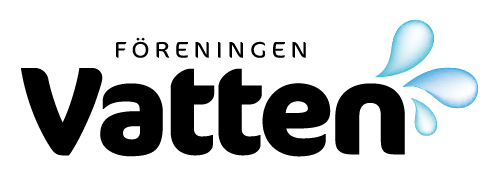Odorous wastewater emissions
The objective of this article is to review odour problems of wastewater treatment facilities and air emission treatment methods. The malodorous wastewater emissions consist of a complex mixture of substances with different properties. A screening of volatile organic and reduced sulphur compounds revealed very low concentrations of individual compounds (< 50 ppb), and only dimethyl […]
Alltid i VATTEN
Ledare, I blickpunkten, Föreningsmeddelanden, Litteratur, Konferenser, Företagsinformation och Pressreleaser.
Ser vi början på återanvändning av renat avloppsvatten för beredning av dricksvatten? / Do we see the beginning of reuse of treated wastewater for potable use?
Involuntary or unconscious reuse of wastewater for potable use is reality all over the world. It is enough to have the intake to a water purification plant situated downstream of a waste water treatment plant in the same catchment area. Though conscious reuse has only existed to a limited extent, out of esthetical, ethical, economical […]
Micro screening in wastewater treatment – an overview
Microscreens, or microstrainers, are widely used within wastewater treatment, and applications include primary and tertiary treatment as well as treatment of stormwater. The following paper is an attempt to present an overview of literature in order to identify possibilities and key questions associated with two types of microscreens based on gravity flow – disc- and […]
Are the International North Sea Conferences making progress?
International Conferences on the Protection of the North Sea have been arranged at intervals since 1984. The first conference in Bremen had a major impact regarding protection of the environmental quality of the North Sea. The following conferences tried to follow up on the outcome and to develop further environmental protection issues. The results of […]
Etablering av biologisk fosforavskiljning i mindre reningsverk / Establishment of enhanced biological phosphorus removal in smaller wastewater treatment plants
Enhanced biological phosphorus removal (EBPR) of municipal wastewater is not a common treatment method in Sweden. An explanation could be insufficient knowledge about the EBPR process. This article aims to increase the knowledge by describing how to establish and evaluate enhanced phosphorus removal in smaller wastewater treatment plants. The phosphate accumulating organisms, PAO, demand an […]
Dagvattenkvaliteten i anslutning till hamnområdet i Västerås / Stormwater quality in the habour area of västerås
Storm water can contain pollutants that cause harmful health- and environmental disturbances. In a harbour area, the quality of storm water can be difficult to allocate from the harbours activity in comparison to other external activities, from neighbouring enterprises etc. This is because of the location of the harbour area, which usually is placed close […]
‘Low concentrations of high priority’ – Pharmaceutical and Personal Care Products (PPCPs); occurrence and removal at wastewater treatment plants
Development of advanced analytical tools and analysis of wastewater samples confirmed the presence of residual amount of pharmaceuticals in environment and WWTP effluent in many European countries. Significant amount of compounds (30–90 % of administrated dose of antibiotics) is transported as active substance via urine. Only some part of taken drug dose is metabolized by organisms and the rest is excreted in changed or unchanged form. Many non-target organisms, that could share some receptors with humans, could be exposed on pharmaceutical activity. Another important issue discussed is the combination of additive, synergistic and antagonistic effect that might reveal in the mixture of pharmaceutically active compounds introduced to the environment.
Styrmedel i vattenpolitiken – Vad säger ekonomisk teori och empiri? / Water pollution policies: What do we learn from economic theory and empirical evidence?
The EU Water directive requires cost effective achievement of predefined water quality targets at the drainage basin scales. It has been known among environmental economists for decades that this can be obtained only if each source is regulated according to its marginal cost and impact on recipients. The review presented in this paper indicates that […]
